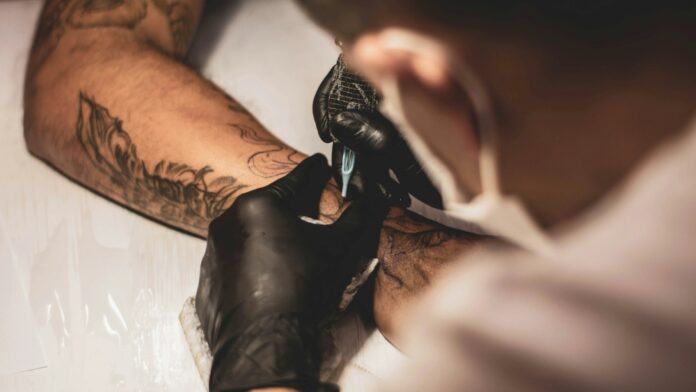Tattooing has a long and storied history in India, dating back thousands of years and spanning various cultures, traditions, and regions across the subcontinent.
From ancient tribal practices to contemporary expressions of art, the evolution of tattooing in India is intriguing, interesting and definitely indicative of cultural diversity and artistic heritage.
Ancient origins
Tattooing has been practiced in India for hundreds and thousands of years, with evidence of tattooed figurines dating back to the Indus Valley Civilisation. These early tattoos, known as mehndi or henna, were intricate designs applied to the skin using a paste made from the leaves of the henna plant. Mehndi was traditionally used for ceremonial and decorative purposes and protection against evil spirits.
Tribal traditions
Tattooing holds significant cultural and spiritual significance for many indigenous tribes and communities in India. Each tribe has its own distinct tattooing traditions, motifs, and techniques passed down through generations. For example, the Apatani women of Arunachal Pradesh adorn themselves with elaborate facial tattoos as a symbol of beauty and identity, while the Rabari women of Gujarat wear tattoos to commemorate important life events and rites of passage.
Evolution and revival
During the colonial era, tattooing in India experienced a decline due to social stigma and Western influence. However, in recent decades, there has been a revival of interest in traditional Indian tattoo art, fueled by a growing appreciation for indigenous cultures and heritage. Modern tattoo artists are drawing inspiration from traditional Indian motifs, symbols, and techniques, mixing ancient practices with contemporary styles to create unique and culturally resonant designs.
Traditional tattoo arts
Gondi Tattoos
Practiced by the Gond tribe of central India, Gondi tattoos feature intricate geometric patterns and nature-inspired motifs, symbolizing harmony with the natural world and ancestral connections.
Siddi Tattoos
The Siddi community, descendants of Africans brought to India centuries ago, are known for their distinctive facial tattoos, which serve as markers of identity and cultural pride.THese tattoos are a reminder of the cultural exchange between India and Africa.
Rabari Tattoos
One of the communities known for their tattoos are Rabaris from Gujarat. The Rabari women of Kutch have practiced tattooing for hundreds of years. They are made for decorative, religious, and therapeutic purposes, making it a revered tradition.


